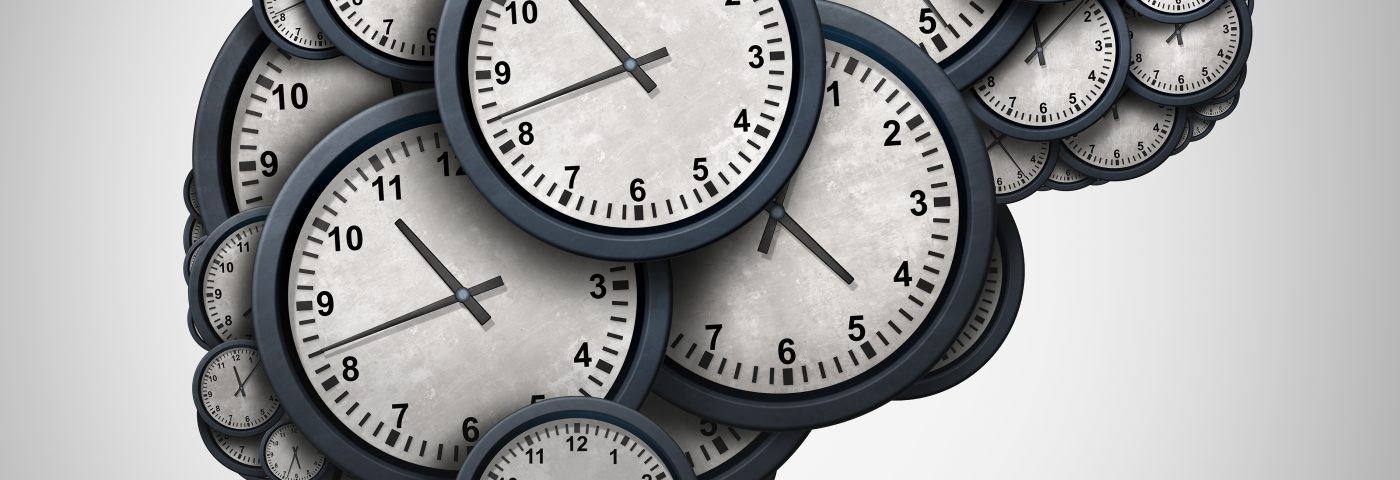Embracing Structure in My EDS Journey

Ehlers-Danlos syndrome (EDS) is teaching me that I want and need structure in every aspect of my life. Much like the presence of EDS, my need for structure and routine is something that has gone unrecognized for most of my life, despite living with the consequences.
Until a few years ago, my life could be described as a series of spontaneous events carried by a loosely organized rhythm of sleeping, eating, and school. Life chugged along its track until the rhythm couldn’t support my load. I’m sure this was partly due to the unpredictability of chronic illness, but it was also due to untreated attention issues.
I’m not alone in this boat. Research shows a close relationship between joint hypermobility and attention deficit and hyperactivity disorder.
Free spirit? More like ‘fail spirit’
When I was younger, the lack of a solid routine, along with my interest in art and general quirkiness, earned me the label of “free spirit.” However, there was nothing “free” about the lack of routine. I constantly worried I was forgetting something and tasks were often completed at the last minute because I struggled to reconcile the time a project needed and the time I had available.
Day planners and calendars proved useless because I didn’t always have them with me. I wrote appointment times on paper scraps to transfer to a calendar at a later time, hoping that my memory was correct and there were no scheduling conflicts. The result was almost no calendar entries.
Other people seemed to have it all together. I felt like a failure. Ironically, being ashamed of my tendency toward disorganization meant I was also failing at being free-spirited.
EDS forced the issue
When my health deteriorated, the journey toward diagnosis and proper treatment brought innumerable appointments for my children and me. I could no longer operate by the seat of my pants and I didn’t have time to sort through notes. I realized that time management was necessary for the management of everything else.
Advice that was given to me over the years began to percolate in my mind. Suggestions that had seemed to offer limited benefits suddenly made perfect sense. I decided to implement those tips and even sought out some additional suggestions.
First, I started using electronic calendars and alarms. I enter appointments directly into my cellphone or tablet, which sync with all my other devices. I set alarms so I leave the house on time. I am relying less and less on memory for recurring appointments and obligations.
It’s easier to keep track of time when I have constant reminders of its passing. Mounting a wall clock in every room has been a game-changer. Being able to see a clock wherever I go helps me keep track of time and adjust my work pace accordingly. Managing the clocks’ battery lives and adjusting for semiannual time changes is a small price to pay for better temporal awareness.
I post a list of weekly appointments and a daily routine where everyone in my household can see it, so that we all have a good understanding of what’s going on. Having a basic routine and structure in place makes it easier to cope with the unexpected events that inevitably arise. The visual reminder helps me keep on track as well.
It is time for a change in attitude
Time management is challenging for me, but the results I’m starting to see are encouraging. It also helps to know that what works for one person doesn’t have to work for another. If I give something an honest effort but a technique still doesn’t help, then it simply doesn’t work for me. It is not an indication of personal failure. It’s OK to let go and move on to another technique.
The changes I’ve described have made my life more manageable. I can’t say I’ve mastered the concept of time management, but I am functioning better than before, and I’m still pressing on.
As always, I would love to hear from you. Please describe your tried-and-true time management techniques and life hacks in the comments below!
***
Note: Ehlers-Danlos News is strictly a news and information website about the disease. It does not provide medical advice, diagnosis, or treatment. This content is not intended to be a substitute for professional medical advice, diagnosis, or treatment. Always seek the advice of your physician or other qualified health provider with any questions you may have regarding a medical condition. Never disregard professional medical advice or delay in seeking it because of something you have read on this website. The opinions expressed in this column are not those of Ehlers-Danlos News or its parent company, Bionews Services, and are intended to spark discussion about issues pertaining to Ehlers-Danlos.







Michelle
I have found that the more I plan every aspect of my life, the better I am able to live and cope. I too use electronic calendars and alarms. I also prepare my snacks each night for the next day, plan what I will wear, keep lists in an app called “anydo”, and keep my travel accessories at the ready. Mind you I have a crazy career time wise, so I truly schedule time for everything, including exercise, treatments, and breaks. Routine is a lifesaver.
Kimberly Zapert
I’m so glad to see that you schedule your self care! I think it's very easy to miss if it isn’t listed in a schedule. Thanks for mentioning which app you use. I’m going to check it out!